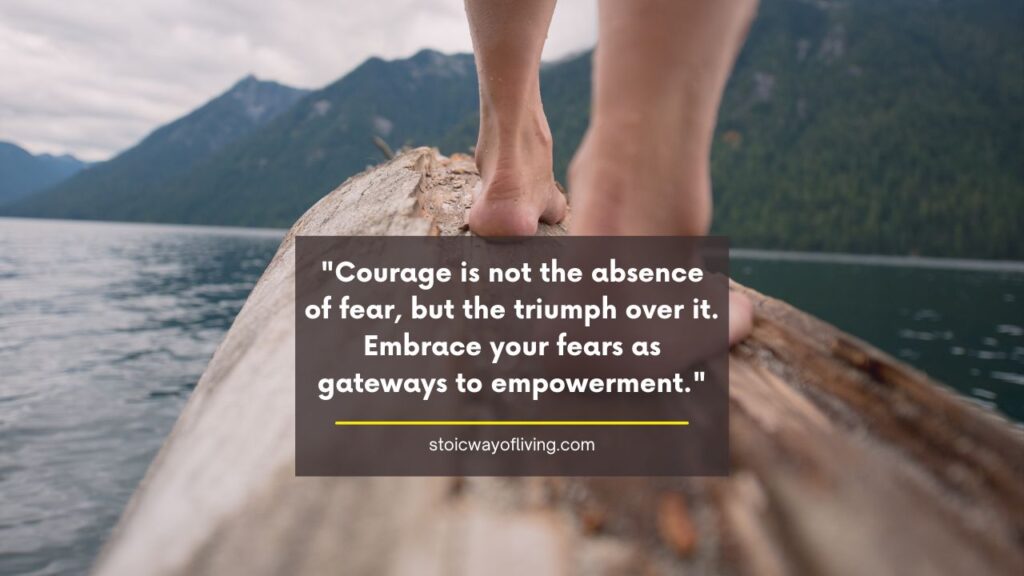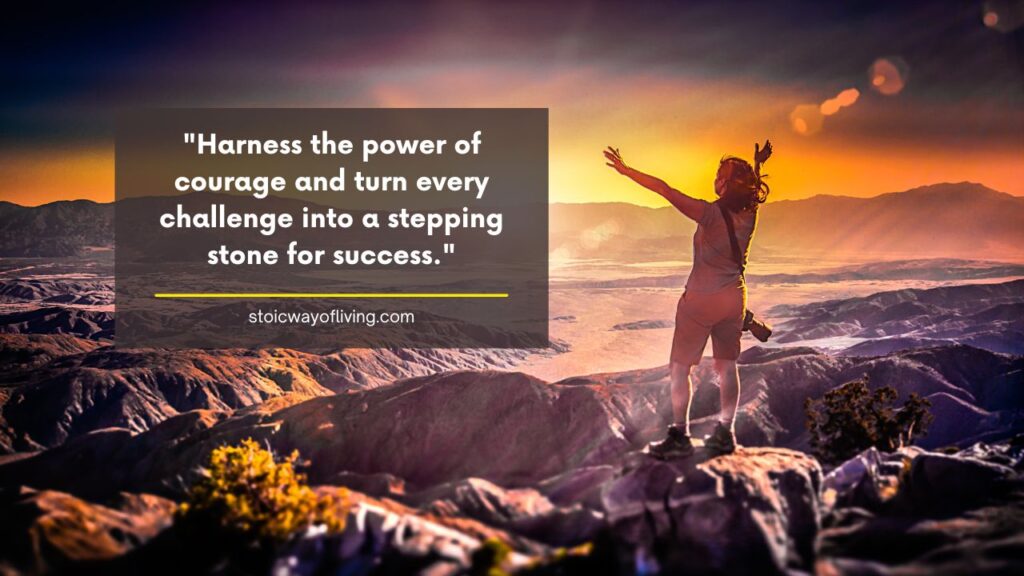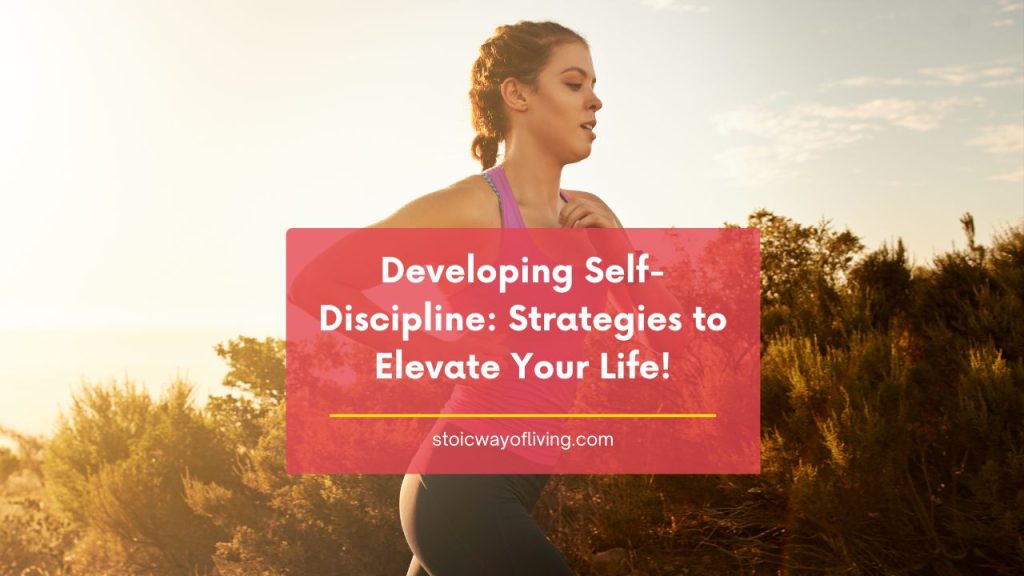Are you ready to unleash the power of courage and embark on a journey of profound personal growth? In Stoic philosophy, courage is more than physical bravery; it’s essential for facing life’s adversities with resilience and integrity.
Imagine the possibilities as you challenge yourself to confront fears, expand your horizons, and cultivate a life rich in innovation and self-improvement.
This article explores how courage, as understood by the Stoics, plays a pivotal role in personal development, helping individuals navigate challenges and grow meaningfully.
The Role of Courage in Personal Growth

Courage is fundamentally about confronting the invisible barriers of fear and doubt that can hinder personal and professional growth.
We achieve significant personal transformation and empowerment by venturing beyond the familiar confines of our comfort zones.
This process begins with understanding our fears, often from a perceived loss of control or the unknown.
By identifying specific fears and systematically challenging them, we can diminish their influence over our decisions and behaviors.
For instance, if fear of failure prevents you from taking on new projects or roles, reframing failure as a learning opportunity can reduce its intimidating effect.
Courage involves embracing vulnerability, which fosters self-improvement and opens avenues for creativity and resilience.
Cultivating Courageous Habits for Growth

Building a courageous mindset is akin to developing a muscle—it requires consistent, dedicated effort and small, daily challenges that strengthen resilience over time.
Neuroscience research suggests that forming new neural connections, essential for overcoming fears, is best achieved through repeated, controlled exposure to challenging situations.
This practice builds courage and enhances your ability to handle stress and uncertainty.
- Identify areas where fear limits you and set achievable goals to confront these fears.
- Incorporate reflection into your routine to recognize and celebrate your progress.
- Commit to a ‘courage schedule’ where you plan to step out of your comfort zone regularly.
- Surround yourself with a support system that encourages your growth.
By implementing these practices, you cultivate courage as a habitual response that propels you toward a more fulfilled and fearless life.
Strengthening Courage for Personal Development

Developing your courage is much like committing to a physical fitness program—it requires dedication, consistent effort, and the right strategies to see results.
According to a study, individuals who regularly engage in courage-building activities improve their ability to face fears and experience enhanced well-being and life satisfaction.
Begin by setting specific, realistic goals that challenge your current boundaries. If you hesitate to take on leadership roles, volunteer for project lead positions, or small team tasks.
Embrace a routine of ‘courage training’ exercises, including scenarios like participating in adventure sports, practicing assertiveness in daily interactions, or exploring new and unfamiliar social settings.
Incorporate mindfulness and meditation into your daily routine to enhance mental flexibility, allowing you to respond to challenges with poise and confidence.
Maintain a portfolio of your courageous acts as a motivational tool and reminder of your progress.
Overcoming Fear and Doubt for Personal Growth

Conquering fear and doubt is essential for unlocking the full spectrum of personal and professional potential.
Fear, often rooted in uncertainty and past experiences, can significantly inhibit growth.
Doubt, similarly, can stifle initiative and creativity by fostering a mindset that avoids risk and resists change.
To effectively overcome these barriers, adopt strategies that reframe fear and doubt as opportunities for growth rather than obstacles.
Cognitive Behavioral Therapy (CBT) offers tools for this by challenging negative thought patterns and replacing them with more positive, constructive ones.
For instance, instead of thinking, “I will fail,” one could reframe this as, “I will learn from this experience, regardless of the outcome.“
To confront fear, gradually expose yourself to fear-inducing situations through systematic desensitization.
Setting small, achievable goals can boost confidence, and creating a culture of feedback and support is crucial for reinforcement and growth.
Harnessing the Power of Courage for Self-Improvement

Courage is a pivotal skill in the self-improvement toolkit. It is the driving force that empowers individuals to transcend their perceived limits and actively engage with life’s challenges.
Harnessing the power of courage involves more than occasional bold moves; it requires a consistent, mindful effort to cultivate bravery in everyday situations.
Initiate this process by setting clear, courageous goals that align with your long-term aspirations. These goals should challenge your current state but remain achievable.
For instance, if advancing your career is a priority, a courageous goal might be to seek out leadership opportunities or to speak at industry events.
These challenges should be tailored to push you slightly beyond your comfort zone, facilitating growth while maintaining attainability.
To build courage effectively, integrate it into your daily routine by facing small fears and taking responsibility for your decisions.
Learning from courageous individuals through biographies or mentorship can provide valuable insights and motivation for self-improvement.
Otherwise, reflect regularly on your progress. This reflection should celebrate successes and critically analyze areas where courage was lacking.
By embracing these strategies, you cultivate a robust courage skill set that propels you towards personal goals and enhances your overall quality of life.
See Also: Cultivating Wisdom in Everyday Life: Things You Need to Take!
Conclusion
Courage is the cornerstone of surviving and thriving in one’s personal and professional life.
Throughout this exploration, we have seen how courage is integral to confronting fears, expanding personal boundaries, and fostering an environment of growth and innovation.
By consistently practicing courage, we equip ourselves with the resilience to face life’s challenges and the adaptability to seize opportunities that lead to substantial personal fulfillment.
If you’re inspired by the concept of living a life unbounded by limits and filled with achievements, consider exploring “Life Without Limits: Inspiration for a Ridiculously Good Life” by Nick Vujicic. In this bestselling book, Nick shares his extraordinary journey of overcoming severe physical disabilities to lead a fulfilling and impactful life. Check it out on Amazon!


